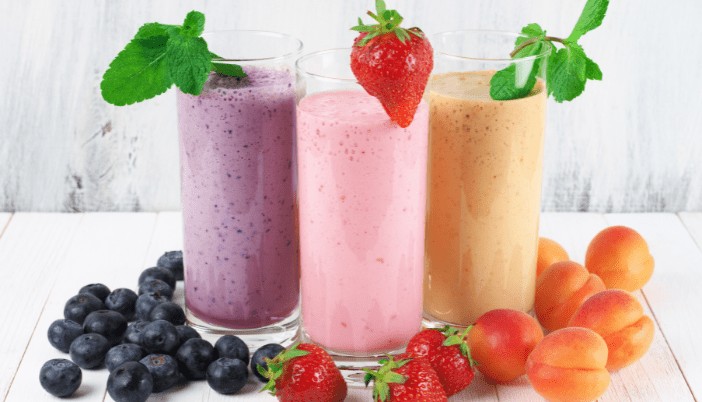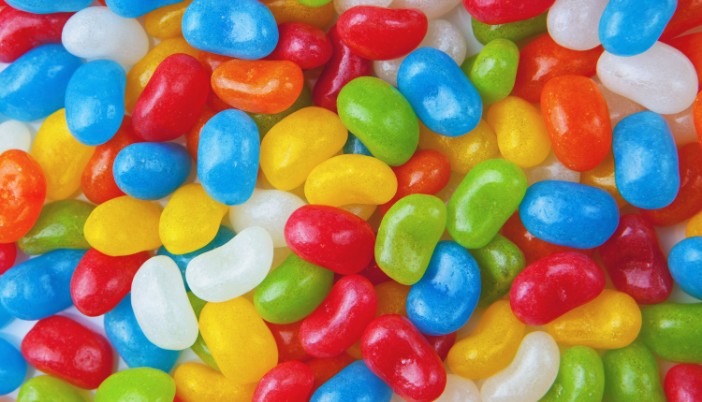Apple Juice: Is It Vegan?
Apple juice. Seems like something vegan.
After all, it’s made from apples. Yet, in the vegan world, there are some gray areas in which items can fall.
Apple juice is one of them. That doesn’t mean there aren’t vegan versions available.
You just have to do your homework.
Not all apple juices are vegan. Here we are going to run you through why some apple juices aren’t vegan. Then we will suggest some brands that are great for vegans.
As an Amazon Associate, I earn from qualifying purchases. The links below may be affiliate links. Please read my disclosure policy for more information.
What’s inside the juice?
Store-bought juice can contain more than just apple juice, water, and sweetener. A lot of brands are non-vegan.
That’s because they use isinglass.
Used as a refining agent, isinglass (also referred to as “fish glue”) is obtained from the swim bladders of fish. It clarifies the liquid in alcohol and juices.
Typically it is removed from the beverage after the clarification process is completed, but there can still be traces of it remaining.
This is one reason why some apple juice isn’t vegan. It still has isinglass within it.
Also, you need to consider the coloring, additives, and preservatives that are used in the juice. Look at the label of your apple juice to see if it contains: omega-3, Vitamin D3, red dye, and sweeteners.
Omega-3
Though this is well-known to support your brain, it is typically sourced from fish. That means it is a no-go area for vegans.
Granted there are vegan sources of omega 3 such as walnuts, chia seeds, and brussel sprouts.
Vitamin D3
D3 is usually obtained from fish fat and fish liver oil as these are the best sources for this vitamin.
Another method of getting D3 is from the lanolin from sheep’s wool.
That means that the apple juice you were wanting to buy may now be off the list.
Vegan-friendly vitamin D3 is available. One way is through lichen.
Red dye
Though most food dye is vegan, there is an exception: cochineal (also referred to as “carmine”).
This is made from bugs called cochineal (which live on cacti in Latin America). These insects are sun-dried, then crushed up, and placed in an acidic solution that extracts the red coloring.
That means that red in your apple juice may be all thanks to this bug.
Of course, vegans being the adaptive bunch of people they are have learned how to produce their own red dye. Typically it is from beetroots or cherries.
Sweeteners
If the apple juice is sweetened using sugar, that can be problematic for vegans. It depends on if it’s white sugar or not.
White sugar can get its color from bone char which is used to bleach the sugar. That means an animal derivative is used.
As always, there are vegan sweeteners available such as, refined sugar, and nectar.
Natural flavors
You may see that the apple juice contains “natural flavors”.
Some of these are vegan but, unfortunately, you won’t know if the flavors have been sourced from plants or animals. That’s because the FDA allows companies to keep that information hidden as a trade secret.
Contact the manufacturer
The ingredients on the apple juice’s label isn’t very telling. You are left wondering if the juice is vegan or not.
If you want to try a specific brand of juice but are uncertain about whether the contents have been derived from animals, you can always reach out to the manufacturer.
Wax On, Wax Off
Vegetables and fruit consist mainly of water, and just like humans, they perspire and lose moisture. Apples produce a natural wax to prevent dehydration and withering.
When the fruit is washed, this natural barrier is removed.
Before transportation, apples have a wax reapplied to preserve them during transit and storage. This wax can come from animal-based sources or plants.
No matter the source, the waxes are edible and approved by the FDA.
Animal sources of wax
Beeswax and shellac are the two main animal-derived waxes. Both of these are derived from insects, bees, and lac. So apples covered with this wax are no longer vegan.
Plant-based sources of wax
Waxes obtained from plants are okay for vegans. Such wax can come either from the leaves of Brazilian palms (carnauba wax) or desert plants (candelilla wax).
The US Apple Organization states that shellac only makes up 2% of waxes used. However, unless you do research, you won’t know what was used to create the wax on your apple.
When it comes to apple juice, things get more uncertain. How do you know which wax was on the apples that made that juice?
Again, you need to do a bunch of detective work to find out.
Vegan Apple Juice Brands
Some brands are recommended for vegans as they don’t contain any animal derivatives. When you go shopping, try one of the vegan-friendly options listed below.
Tropicana Apple Juice
Most of the juices offered by Tropicana are vegan. That includes its apple juice.
However, you will find that some of Tropicana’s products contain cochineal. As always, check the ingredients before you buy.
Honest Kids Appley Ever After Juice
You will be safe with this one. The juice is organic and contains nothing artificial.
It’s also gluten-free. The company prides itself on the fact that all its products are GMO-free and made with USDA-certified organic ingredients.
Gogo SqueeZ Apple Apple
Gogo is a company that uses only 100% natural ingredients, sourced from fruit and vegetables. For its Apple Apple juice, it’s made from apple puree and concentrated lemon juice.
How’s that for completely vegan?
Motts 100% Original Apple Juice
Motts says that an 8-ounce glass of this juice is equivalent to 2 servings of fruit. A novel way to ensure you get part of your 5+ a day.
The apple juice is a simple formulation of water and apple juice concentrate with a splash of ascorbic acid.
Minute Maid Apple Juice
There is debate over whether Minute Maid juices are vegan or not. Some say they aren’t (with claims the company sources it’s D3 from lanolin and uses carmine for coloring).
Yet, the ingredients for Minute Maid Apple juice come across as vegan: pure filtered water, apple juice concentrate, and ascorbic acid.
No products found.
Tree Top Apple Juice
Tree Top has gained a reputation for providing top-quality fruit juices. It’s apple juice is a must-try for vegans.
Regarding the juice, Tree Top boasts:
“We grow your juice. Each handpicked apple in our juice comes from growers we know and trust right here in the Pacific Northwest. Rooted in good fruit, we provide simple, wholesome ingredients in every bottle.”
It is made with apple juice from concentrate (water, concentrated apple juice) and ascorbic acid (Vitamin C).
That’s keeping things simple and vegan.
Great Value Light Apple Juice
You may find this brand in your local supermarket and wonder if it’s okay for vegans.
But look at the ingredients:
Water, Apple Juice Concentrate, Natural Flavors, Calcium Gluconate, Malic Acid, Calcium Lactate, Ascorbic Acid (Vitamin C), Sucralose and Vitamin D3.
Some of those would need further investigation before you decide to put this juice in your shopping trolley.
Make your own juice

If you still have an issue with buying apple juice from the store, you could always make your own. That way you have control over what goes inside the juice.
If you buy from an organic shop or farmers market, ask about the wax on the apple. If it’s plant-based, you’re good to go.
You could always go to an orchard that allows you to pick your own fruit (but then you have to ask about pesticides).
There are plenty of recipes for apple juice available on the internet. So why not have a try?
The final juice on apple juice
Just because apple juice is made from fruit doesn’t make it instantly vegan. The extras that are added to the juice are what makes the difference.
Some brands do make vegan juice, and we have listed only a few of these.
If you aren’t a fan of store-bought juices, you can always try your hand at making your own. The issue with this is that the wax on the apple could be from beeswax or shellac.
Yep, animal products.
As always, when buying vegan you need to do your research before committing. That includes something as humble as apple juice.
Please note, as discussed in our ‘Is Sugar Vegan?’ article, not all types of sugar can be considered vegan. It is therefore the responsibility of the reader to make their own inquiries with the manufacturers of these suggested vegan friendly alternatives to determine whether the sugar used in these products are suitable for vegan consumption.















